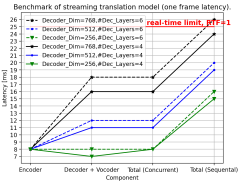SignLens
Elevator Pitch: Imagine being able to communicate with anyone, anywhere, regardless of whether you know sign language. SignLens bridges the gap, transforming your smartphone into a real-time sign language interpreter. It’s not just an app; it’s a step towards a more inclusive world.
Concept
An AI-powered mobile application that translates sign language in real-time to text and spoken words, using the camera to capture signs and a convolutional neural network for recognition.
Objective
To enhance communication between deaf individuals and the hearing world, promoting inclusivity and easing daily interactions.
Solution
Utilizing advanced ISLR technology to accurately recognize and translate sign language into spoken language and text instantly.
Revenue Model
Freemium app with basic features for free and a premium subscription offering advanced features like live translation, custom sign language learning, and integration with smart devices.
Target Market
Deaf and hard of hearing individuals, family members, educators, customer service representatives, and businesses aiming to be more inclusive.
Expansion Plan
Initially focusing on Brazilian Sign Language (LIBRAS), with plans to include other sign languages over time. Expand services to educational institutions and customer-facing businesses.
Potential Challenges
Ensuring high accuracy across diverse sign languages and dialects, user privacy concerns, and managing computational resources for real-time translation.
Customer Problem
The gap in effective communication between deaf individuals and the non-signing public, leading to social exclusion.
Regulatory and Ethical Issues
Adhering to data protection laws, ensuring the app is accessible and does not misrepresent sign languages, and ethical considerations in AI development.
Disruptiveness
SignLens can revolutionize communication for the deaf community, breaking down longstanding barriers and fostering more inclusive environments.
Check out our related research summary: here.




Leave a Reply